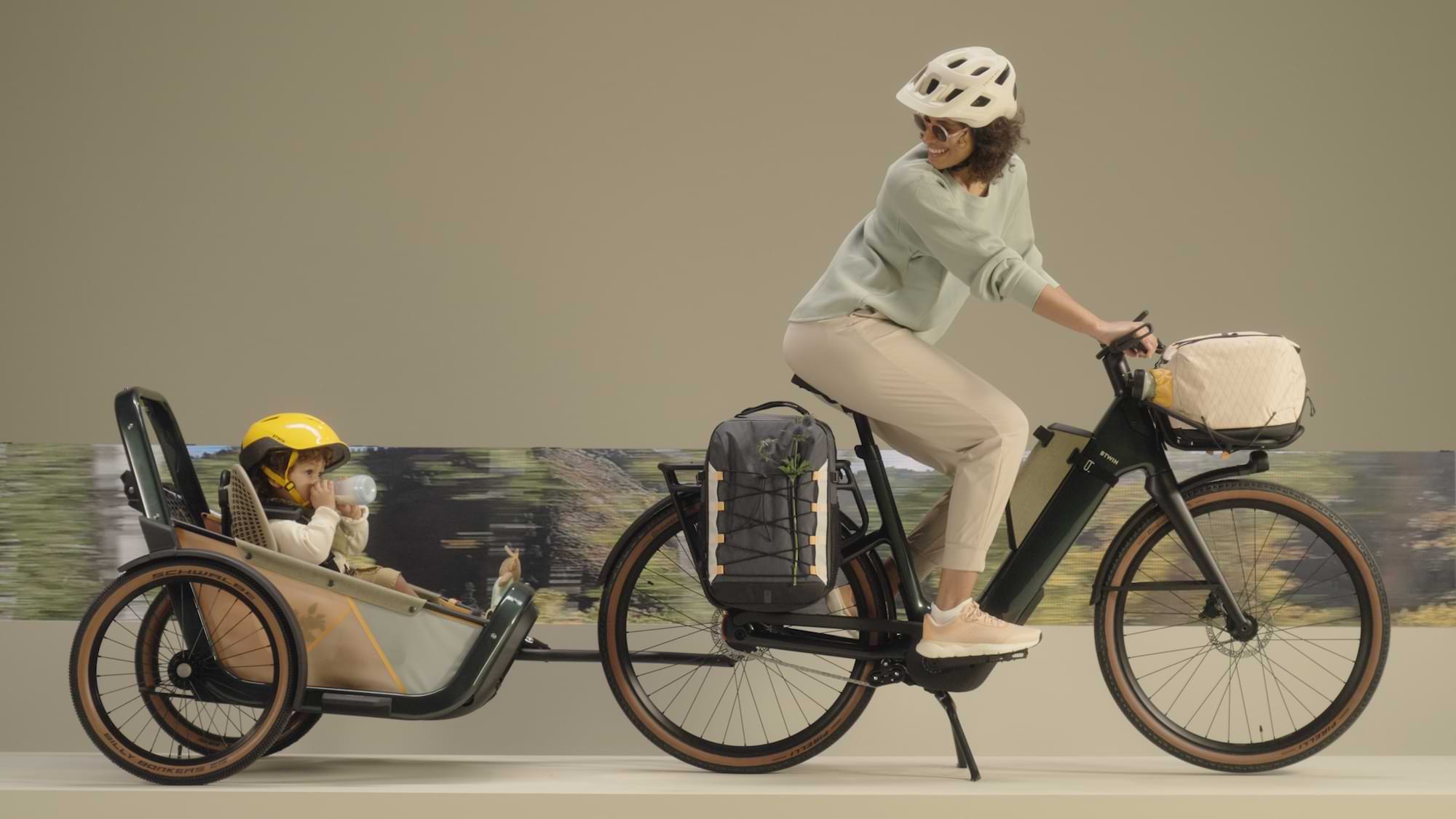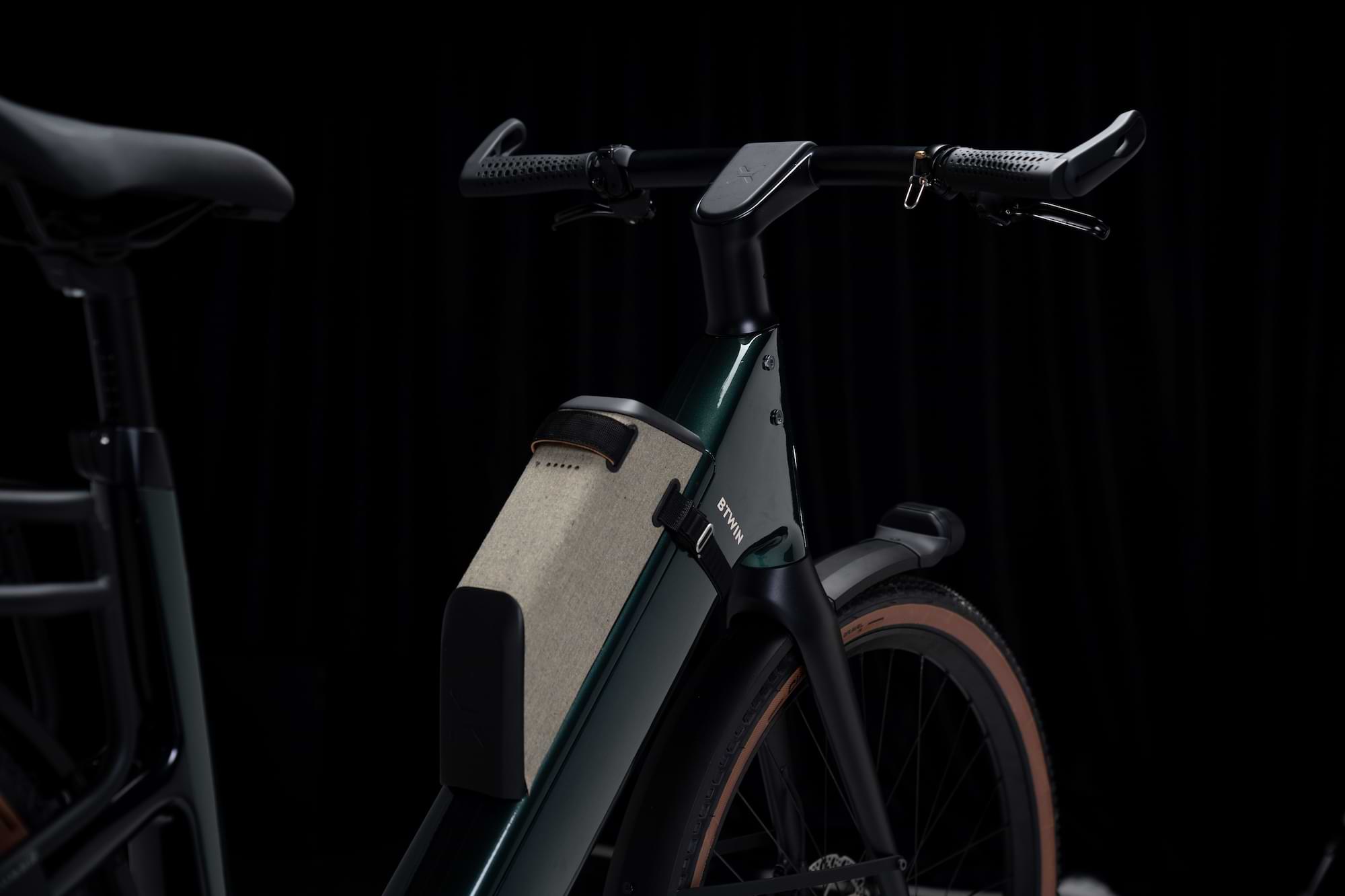
Decathlon has introduced a second version of its Magic Bike, designed to replace the car in an active travel future, a vehicle which can take its rider on adventures.
The second concept e-bike from the French budget sports retailers is an attempt to create something different, an "invitation to travel", as Decathlon puts it. At present, this is a concept bike: it just exists online, with no price point, but it is branded as B'Twin, the retailer's in-house marque.
"Our second Magic Bike is an invitation to travel," the marketing bumph says. "From the getaway at the end of the backyard, to the great adventure it offers infinite possibilities, by adapting itself naturally to your escape needs."
Going further, the brand asks: "what if we considered the bicycle as a catalyst for reinventing the future of humanity?", before continuing: "let's abandon the idea of seeing [the bike] simply as a pastime or a mere consumer product and envision it as a true instrument for transforming our lifestyles, aiming to improve the quality of life while reducing our environmental footprint."
The second Magic Bike seeks to build on the capabilities of the first, by introducing the ability to increase the range of the bike through an additional battery, a streamlined headset, which uses your phone to become a dashboard, and new added accessories like a trailer which can be used as a child's buggy, or luggage which can be simply fixed to the bike.

The bike can be fitted with a front rack and panniers easily, and a trailer can be attached to the rear. There is also the technology to regenerate power through braking, and going downhill.
Decathlon say that its mission is to get as many people as possible on bikes. The first magic bike was built around mobility, Decathlon's innovation leader Emerson Delcourt says in a video, while the second is about adventure.
Decathlon says the point of the Magic Bike is: "Empowering you to increase your escape and give you the ability to focus on the pleasures of adventure with our smart power management solutions."
The first model was launched with some basic details about the electric motor and drivetrain, that we can assume are applicable to the second: “Its electric motor helps you up to 25 km/h. No more shifting, like a car, the fluidity of the automatic transmission takes care of everything. Whatever your route, the motor adapts to your cadence. Its fully protected belt transmission reduces maintenance.” There is therefore no derailleur.
The brakes are operated by a single lever on the right hand side of the bar: 60% of braking force takes place at the front while the other 40% is at the rear.
It has a wireless recognition system to unlock and lock the bike, and the kickstand locks it in place to further deter thieves.
The Magic Bikes might not be on sale just yet, but Decathlon has high hopes for it, a case it makes clear as it asks: "What if we could directly or indirectly influence a billion people, inspiring them to embrace cycling with enthusiasm and conviction?", and then, implores: "Think of the profoundly positive impact this could have on a global scale!"







